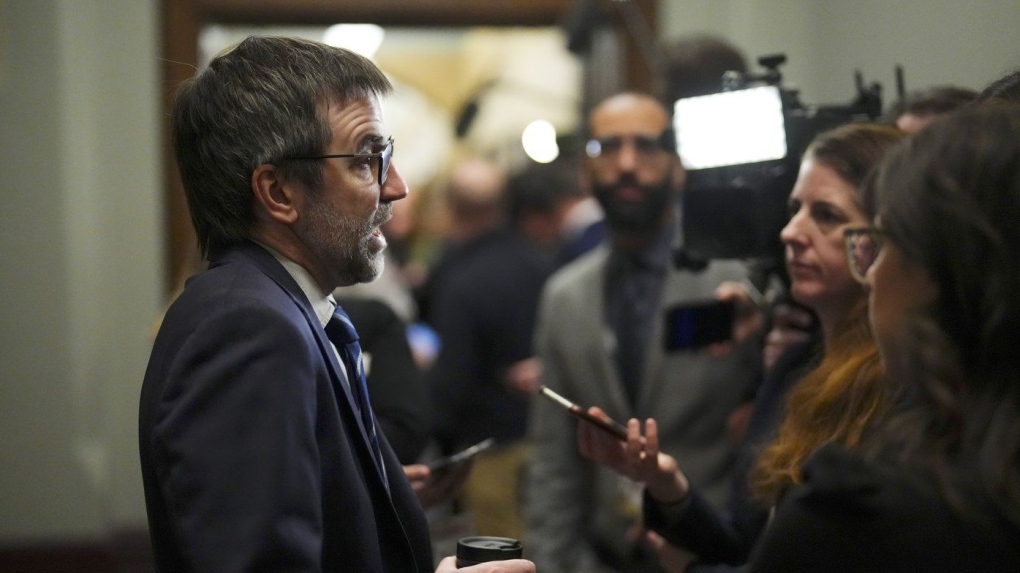Environment Minister Stephen Guilbeault says Canada is disappointed that negotiators were unable to reach an agreement on a global deal to end plastic pollution, but hopes a deal will be reached when negotiations resume next year. He said he continues to look forward to it.
Negotiations by South Korea’s negotiating committee, scheduled to end on Sunday, were supposed to be the fifth and final round of negotiations on the world’s first international treaty to tackle the plastic pollution crisis.
Although the clock is ticking for negotiations, the treaty will reduce the total amount of plastic on the planet and provide globally binding legal protection against toxic chemicals used in plastic production. Countries remained at an impasse over whether to introduce regulations. Negotiators plan to resume negotiations in 2025.
Despite the impasse, Guilbeault said an agreement was still within reach.
“I think we’re running out of time, but I don’t think the work we’ve done this week will be wasted,” he said in an interview Sunday.
“I think we can move forward with that and I’m sure given a little more time we can come to an agreement.”
Canada and 100 other countries want the treaty to include a global goal to reduce plastic production to sustainable levels, but some oil and plastic producing countries, including Saudi Arabia and Russia, oppose it.
At Sunday night’s meeting, Ecuadorian Commission President Luis Bayas Valdivieso said that although progress had been made in South Korea, the work was far from done and must be realistic. He said countries are most divided when it comes to problematic plastics, chemicals of concern, plastic production and treaty funding, as well as proposals regarding the treaty’s principles.
The Plastics Treaty negotiations conclude a series of international negotiations in recent weeks that some observers say are needed to address the interconnected crises of climate change, biodiversity loss and environmental pollution. It didn’t reach that point.
The UN’s Biodiversity Summit and Climate Change Summit both ended earlier this month with less funding than developing countries said they needed to tackle these issues. The G20 leaders’ statement after meeting in Brazil last month also failed to clearly reiterate the call for a transition away from fossil fuels, one of the hard-fought agreements reached at last year’s UN climate change summit.
Guilbeault said he plans to use next year’s G7 summit in Alberta as a platform to move the issue forward.
He said on Sunday it had been a “tough year” for international environmental negotiations, adding: “We cannot give up. We must keep trying.”
Canada’s own ban on some single-use plastics is being challenged in court. Plastic manufacturers and chemical companies argued that the government’s declaration of all plastics as hazardous was too broad, and successfully challenged the designation Canada used to enact the ban. The case is currently before a federal appeals court.
In 2020, Canada produced more than 7.1 million tonnes of plastic, of which only 5% was recycled material. Approximately 5 million tons of plastic ended up as waste, with less than 10 percent recycled.
Without action, global plastic waste is expected to nearly triple by 2060, according to the Organization for Economic Co-operation and Development. Plastics made from oil and other fossil fuels also account for an estimated 3.4% of global greenhouse gas emissions.
Plastic pollution is a killer of wildlife and a contaminant of soil and water supplies around the world.
Microplastics, ranging from less than the width of a pencil eraser to about the width of a mitochondria, are virtually ubiquitous, found everywhere from human blood to Arctic sea ice. In species such as fish, these large broken pieces of plastic are associated with reduced levels of growth and reproduction, among a series of other problems.
Researchers are still working to determine more definitively whether and at what levels microplastics pose a direct risk to human health.
With files from The Associated Press.
This report by The Canadian Press was first published Dec. 1, 2024.

